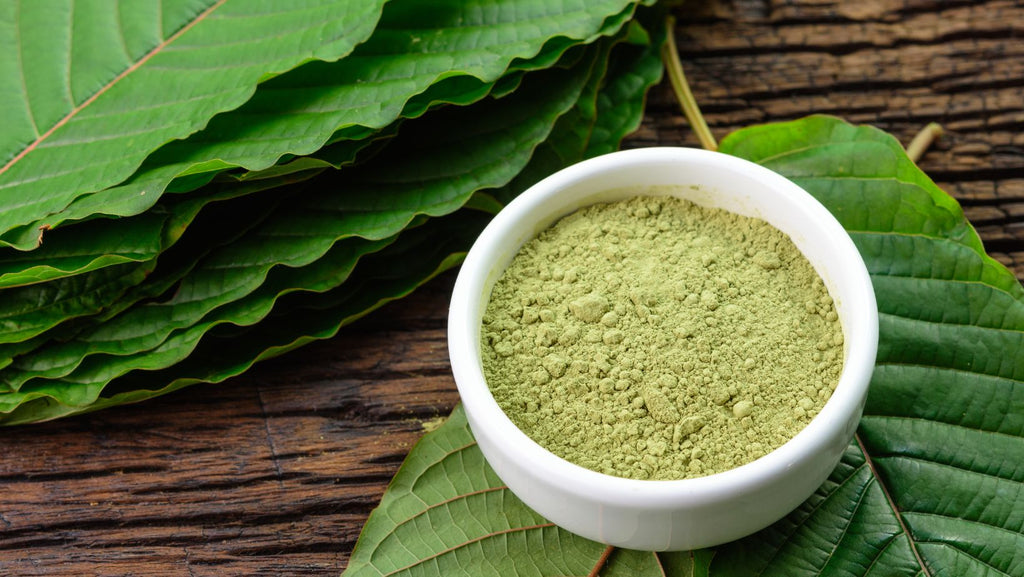Explore the legal status of Kratom in Alabama, its impacts, future legislation, and FAQs on compliance and alternatives.
Is Kratom Legal in Alabama?
Kratom, a substance derived from the leaves of the Mitragyna speciosa tree native to Southeast Asia, has been at the center of a heated debate across the United States. In Alabama, the legal status of Kratom has been firmly established, placing it under the list of controlled substances.

The decision to ban Kratom in Alabama was made in response to concerns about its potential for abuse, addiction, and health risks. This move has sparked a wide range of reactions, from disappointment among those who use Kratom for its purported health benefits to support from those concerned about public health and safety.
Understanding the Current Legal Framework
In 2016, Alabama took a definitive stance on Kratom by classifying it as a Schedule I controlled substance through Senate Bill 226. This classification puts Kratom in the same category as drugs deemed to have a high potential for abuse and no accepted medical use, such as heroin and LSD. As a result, the manufacture, distribution, possession, and use of Kratom are illegal within the state's borders.
The decision reflects a precautionary approach to substances that have not undergone extensive research or FDA approval, aiming to protect public health and curb potential drug abuse epidemics before they can take hold.
Historical Context of Kratom Legislation in Alabama
The journey to Kratom's prohibition in Alabama began with increasing reports of its use as an alternative to traditional opioids and anecdotal evidence of its benefits in pain management and opioid withdrawal.
However, the lack of comprehensive studies and the growing number of emergency room visits attributed to Kratom misuse caught the attention of state lawmakers and health officials. Prior to the 2016 ban, there was no specific legislation regarding Kratom in Alabama, which meant its sale and use were unregulated.
The shift to classify Kratom as a Schedule I substance was a direct response to these concerns, showcasing the state's swift action to regulate substances that could pose a risk to public health and safety. This historical context highlights the state's evolving approach to drug policy, particularly as it relates to new or emerging substances that challenge traditional regulatory frameworks.
The Legal Battle Over Kratom in Alabama
The debate over Kratom's legality has been a contentious issue, not just in Alabama but across the United States. This legal battle pits proponents against opponents, with each side presenting compelling arguments based on health, safety, and personal freedom. The clash over Kratom's legal status underscores a broader discussion about drug policy, regulation, and the role of government in determining the legality of substances.

Key Arguments from Supporters and Opponents
Supporters' Arguments:
- Natural Alternative: Advocates argue that Kratom is a natural alternative to prescription opioids, offering pain relief and assistance with opioid withdrawal symptoms without the same risk of addiction.
- Personal Freedom: They also emphasize the importance of personal freedom and the right to make informed health decisions without excessive governmental interference.
- Need for Research: Supporters call for more research into Kratom's benefits and potential risks, arguing that a ban stifles scientific inquiry and understanding.
Opponents' Arguments:
- Public Health Risks: Critics highlight the potential for abuse, addiction, and health risks associated with Kratom, including cases of poisoning and even death.
- Lack of Regulation: There is concern over the lack of quality control and standardization in the Kratom market, which can lead to products contaminated with harmful substances.
- Gateway Drug Potential: Some opponents fear that Kratom could serve as a gateway drug, leading users to more dangerous substances as they seek similar or stronger effects.
The Role of Federal and State Law in Kratom Regulation
Federal Oversight:
- The Drug Enforcement Administration (DEA) and Food and Drug Administration (FDA) have expressed concerns about Kratom's safety and potential for abuse. While the DEA has flirted with the idea of classifying Kratom as a Schedule I substance nationally, significant public backlash and calls for further research have so far prevented a nationwide ban.
- The FDA has issued warnings about Kratom's safety, advising against its use due to potential health risks and lack of approved medical benefits.
State-Level Decisions:
- State laws regarding Kratom vary widely, reflecting a patchwork of regulations that either ban, regulate, or allow its use. This diversity in state laws demonstrates the complex balance between safeguarding public health and upholding personal freedoms.
- Alabama's decision to classify Kratom as a Schedule I substance highlights the state's precautionary approach, prioritizing public safety over the purported benefits of Kratom until more definitive scientific evidence is available.
- The legal battle over Kratom in Alabama and beyond underscores the challenges of regulating substances that fall into a gray area between medicinal benefit and potential abuse. As this debate continues, the balance between protecting public health, fostering scientific research, and respecting personal choice remains a central concern.
Kratom Legality in Alabama vs Neighboring States
The legal landscape for Kratom in the United States is a patchwork of regulations, with laws varying significantly from state to state. Alabama's strict ban on Kratom places it in a unique position relative to its neighboring states, where the legal status of the substance can differ dramatically.
Understanding these differences is crucial for residents of Alabama and those in adjacent areas, especially for individuals who use Kratom for medicinal purposes and may travel across state lines.
- Florida: Kratom is legal in Florida, except in Sarasota County, where it is banned. The state's approach allows for the use of Kratom within specific legal boundaries, highlighting a more permissive stance compared to Alabama.
- Georgia: In Georgia, Kratom is legal and regulated. The state passed the Kratom Consumer Protection Act, which aims to ensure the purity and safety of Kratom products sold within its borders. This law represents a regulatory approach, focusing on consumer safety rather than outright prohibition.
- Mississippi: Mississippi's stance on Kratom is mixed, with the substance being legal at the state level but banned in several counties and cities. This localized approach to regulation creates a complex legal environment for Kratom users within the state.
- Tennessee: Kratom is legal in Tennessee for individuals over the age of 21. The state has regulations in place to control the sale and possession of Kratom, demonstrating a balanced approach that permits its use while imposing age restrictions to protect younger populations.

Comparative Overview:
Unlike Alabama, where Kratom is classified as a Schedule I controlled substance, neighboring states exhibit a range of legal frameworks from outright bans in specific locales to regulated use.
The variation in laws reflects differing governmental responses to Kratom's perceived benefits and risks, with some states opting for regulation and consumer protection measures instead of prohibition.
The Impact of Kratom's Legality on Alabama
The classification of Kratom as a Schedule I controlled substance in Alabama has had significant impacts on various aspects of society within the state. This decision, driven by concerns over the potential for abuse and health risks associated with the substance, has shaped legal, economic, and social landscapes in Alabama, influencing everything from law enforcement practices to public health initiatives.
- Increased law enforcement activities and redirection of resources
- Economic loss for businesses and missed tax revenue opportunities
- Social stigma and challenges for individuals seeking alternative treatments
- Potential negative public health outcomes due to reduced treatment options
The decision to ban Kratom in Alabama reflects a precautionary approach to an increasingly popular yet controversial substance. While aimed at protecting public health and safety, the ban's impacts are multifaceted, affecting legal, economic, and social spheres, as well as public health in the state.
Buying Kratom Products In Alabama
In Alabama, the legal status of Kratom as a Schedule I controlled substance means that buying, possessing, selling, or using kratom products, within the state is illegal. This prohibition extends to online purchases, with reputable vendors typically refusing to ship Kratom to Alabama due to the legal risks involved.
Residents considering acquiring Kratom from neighboring states where it's legal must also be aware that bringing it into Alabama is against the law and could result in legal consequences.
This stringent approach reflects Alabama's commitment to public safety, underscoring the importance for residents to explore legal alternatives and consult healthcare providers for guidance on health or wellness supplements.
Future of Kratom Legislation in Alabama
The landscape of Kratom legislation in Alabama could be subject to change in the future, influenced by ongoing research, public opinion, and advocacy efforts. As the conversation around Kratom evolves at both the national and state levels, there's potential for legislative revisions that could alter its current status as a Schedule I controlled substance.

Scientific studies exploring Kratom's pharmacology, safety profile, and therapeutic potential are crucial. These investigations could provide the evidence needed to reconsider the legal status of Kratom, potentially leading to a reclassification that acknowledges both its benefits and risks with a more nuanced regulatory approach.
Potential Changes and Advocacy Efforts
Advocacy groups and Kratom supporters play a pivotal role in driving the conversation around its legal status. These groups lobby for Kratom's benefits, push for research, and challenge misconceptions about the substance. Efforts to introduce regulations that ensure the purity and safety of Kratom products like kratom powders and kratom capsules, rather than outright bans, are gaining traction.
Such regulations could include age restrictions, quality control standards, and clear labeling requirements. Advocacy efforts also focus on educating policymakers, health professionals, and the public about Kratom's potential as a tool for managing pain and opioid withdrawal symptoms, aiming to create a foundation for informed decision-making regarding its legality.
|
Aspect |
Current Status |
Potential Future Changes |
|
Legal Classification |
Schedule I controlled substance |
Possible reclassification based on research outcomes |
|
Advocacy |
Push for legal reform and research |
Increased efforts may lead to legislative changes |
|
Regulatory Approach |
Complete ban |
Potential shift to regulated access |
|
Public Opinion |
Mixed |
Growing awareness and support could influence policy changes |
The future of Kratom legislation in Alabama remains uncertain, but the landscape is ripe for change. With continued advocacy, research, and dialogue, there's a possibility for a shift towards a regulatory framework that balances public health concerns with the recognition of Kratom's potential benefits.
How to Stay Informed About Kratom Laws
Staying informed about Kratom laws, especially in a state like Alabama where regulations are strict and subject to change, is crucial for individuals interested in the substance for medicinal or research purposes. As laws evolve and the debate around Kratom continues, being up-to-date ensures compliance and awareness of one's legal rights and obligations.
- Subscribe to Advocacy Newsletters: Get legal updates and research news.
- Follow Legal Blogs: Access expert analyses on Kratom legislation.
- Monitor State Announcements: Check Alabama's official government websites for law changes.
- Join Kratom Forums: Engage with online communities for firsthand updates.
- Watch Public Meetings: Gain insights from discussions on drug policies.
- Consult Legal Experts: Seek advice for personal guidance on Kratom laws.
- Read News Regularly: Stay updated with reports from reliable news outlets.
The Bottom Line
The legal status of Kratom in Alabama is clear: it is classified as a Schedule I controlled substance, making its sale, possession, use, and distribution illegal within the state.
This status reflects Alabama's stringent approach to regulating substances that are deemed to have a high potential for abuse and no accepted medical use. For individuals and businesses, understanding and complying with these regulations is crucial to avoid legal consequences.
While the future of Kratom legislation may hold the potential for change, driven by ongoing research and advocacy, the current legal framework necessitates caution and awareness from all parties involved.
Some FAQs About Kratom's Legal Status in Alabama
Q: Are there any legal alternatives to Kratom for pain management in Alabama?
A: Yes, individuals should consult healthcare providers for legal and safe alternatives for pain management.
Q: Can I travel through Alabama with Kratom?
A: Traveling through Alabama with Kratom is risky and could result in legal consequences if discovered.
Q: What should I do if I'm caught with Kratom in Alabama?
A: It's advisable to seek legal representation immediately if caught with Kratom in Alabama.
Q: Will Alabama ever legalize Kratom?
A: The future legalization of Kratom in Alabama is uncertain and would depend on changes in legislation, public opinion, and scientific research.
Q: Are there exceptions to Kratom's legal status for researchers or educational institutions in Alabama?
A: Researchers affiliated with educational institutions may apply for special licenses to study Kratom, but these are strictly regulated.
Q: How can I support efforts to change Kratom's legal status in Alabama?
A: Supporting advocacy groups, participating in public discussions, and contacting state representatives are ways to advocate for legal change.

